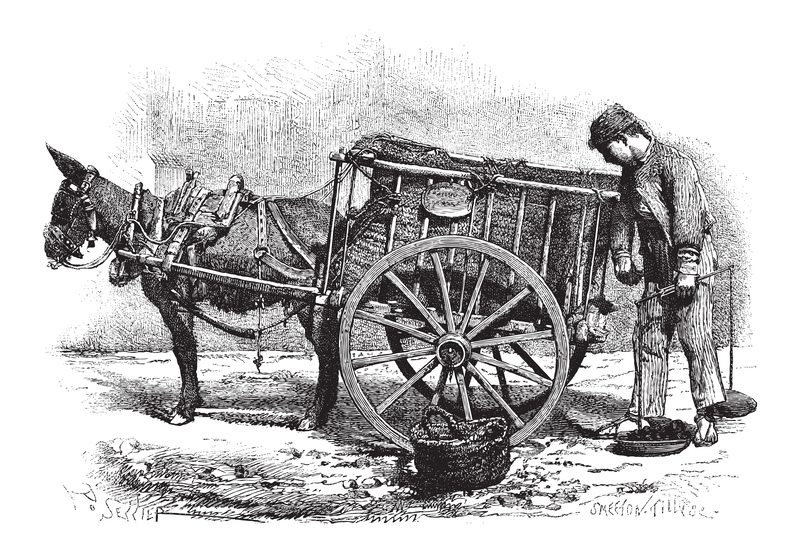Waste Alchemy: Converting Refuse into Energy
In an era of increasing environmental concerns, the process of transforming waste into energy has emerged as a beacon of hope. Dubbed as waste alchemy, this technique not only addresses pollution but also contributes substantially to energy sustainability. Let's delve deep into the intricacies of this fascinating subject.
Understanding the Concept of Waste-to-Energy (WtE)
At its core, Waste-to-Energy (WtE) is a process that converts non-recyclable waste into usable forms of energy like electricity, heat, or fuel. Instead of allowing refuse to fester in landfills, WtE utilizes different technologies to harness the energy embedded in this waste.
The Technologies Behind Waste Alchemy
The modern practice of converting refuse into energy involves various methods. Here are some prominent ones:
- Incineration: An age-old method that has been refined over the years, incineration involves burning waste at high temperatures to produce heat, which can be used to generate electricity.
- Gasification: This technique converts organic waste materials into a synthesis gas (or syngas), which, in turn, can be used to produce electricity and heat.
- Pyrolysis: Similar to gasification, pyrolysis decomposes organic waste materials through heating in the absence of oxygen, converting them into bio-oil, syngas, and biochar.
- Biological Treatment: Utilizing anaerobic digestion, organic waste is broken down by bacteria, producing biogas and compost.

The Environmental and Economic Benefits of Waste Alchemy
Environmental Benefits
The environmental benefits of waste conversion technologies are numerous:
- Reduction in Landfill Use: Diverting waste from landfills decreases the environmental footprint and curtails harmful emissions like methane, a potent greenhouse gas.
- Resource Recovery: Essential metals and minerals are often recovered during these processes, adding value and reducing the need for virgin resource extraction.
- Reduced Carbon Emissions: By converting waste into energy, the reliance on fossil fuels diminishes, leading to a reduction in carbon emissions.
Economic Benefits
From an economic standpoint, waste alchemy offers significant opportunities:
- Employment Opportunities: The expansion of WtE facilities could lead to the creation of numerous jobs in technology, engineering, and operations.
- Energy Sovereignty: By generating local energy from waste, countries and communities can lessen their dependence on imported fuels.
- Cost Savings: Reducing the need for landfill management and augmenting the energy supply can result in substantial financial savings.
Challenges Faced in Waste Alchemy
Despite its numerous advantages, the path to effectively converting waste into energy is fraught with challenges:
Technological and Operational Hurdles
- Technology Costs: Advanced technologies like gasification and pyrolysis often require significant capital investment.
- Efficiency Concerns: Maximizing the energy output from waste while minimizing emissions is a constant challenge.
Social and Regulatory Concerns
- NIMBY (Not In My Backyard) Syndrome: Local opposition to WtE facilities is a recurring concern, often due to misconceptions about pollution and health risks.
- Lack of Supportive Policies: Inconsistent regulations and insufficient incentives can stifle growth in the waste-to-energy sector.
The Future of Waste Alchemy
Looking ahead, the future of waste alchemy seems bright. As technology advances and awareness grows, WtE can play a pivotal role in our energy transition. Here are some anticipated trends:
Integration with Smart Grids
As smart grid technologies evolve, integrating WtE systems can enhance grid reliability, offering an adaptable energy source that can respond to fluctuating demands.
Innovation in Waste Segregation
Advances in AI and machine learning might soon allow for better waste sorting, maximizing the efficiency of WtE conversion by ensuring that only the most suitable materials undergo treatment.

The Role of Individuals in Waste Alchemy
While large-scale operations handle the brunt of waste transformation, individuals also have a pivotal role to play:
- Proper Waste Segregation: Ensuring the separation of organic and inorganic waste at the source can significantly enhance the efficiency of WtE technologies.
- Community Awareness: By understanding and advocating for waste-to-energy solutions, individuals can foster a more supportive environment for such technologies.
Conclusion
Waste alchemy, the transformation of refuse into energy, holds immense potential to revolutionize our approach to waste management and energy production. While challenges remain, the synergy of technology, policy, and public support could lead to a sustainable, energy-efficient future. Embracing and investing in these technologies today will pave the way for a cleaner tomorrow.